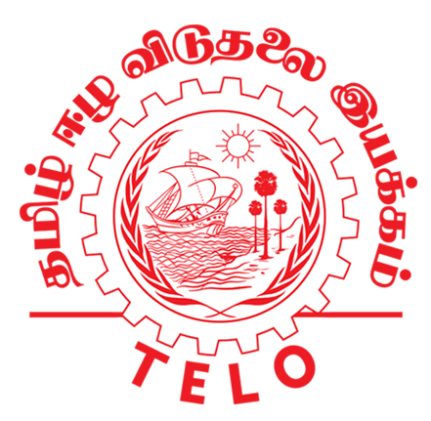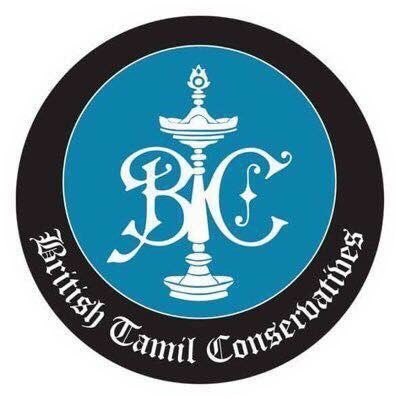Sri Lanka’s long-standing problem of seeking justice for the Tamils, and Catholics after the Easter Sunday attacks, has reached the United Nations Headquarters doorstep in New York and even Geneva, amidst the coronavirus scare. The Government in its lacklustre campaign to resolve domestic affairs, has failed to grapple with those issues, despite calls to resolve national issues such as reconciliation, repealing of the Prevention of Terrorism Act (PTA) and exposing the mastermind behind the Easter Sunday attacks.
President Gotabaya Rajapaksa addressed the 76th United Nations General Assembly (UNGA) in New York amidst black flag carrying Sri Lankan Diaspora protesting outside the UN building. Some were also protesting opposite the Permanent Mission of Sri Lanka to the United Nations and this is the first time that the Sinhalese protested. There were no other protest held in New York and that brought the attention to the ‘crisis’ Sri Lanka is currently facing.
Easter Attacks need a closure
The Government was prepared for this, however. The speech by the President said it all. The fine-tuned speech by the President was well presented, and the core issues he spoke about were areas that are highly sensitive and need serious concentration in implementation. The President also highlighted some of the burning issues and how those could be solved.
Protests were held every time a Sri Lankan leader delivered a speech at such international fora in the past, but this is the first time Catholics and their clergy, from both Sinhala and Tamil communities, gathered in New York over the Easter attacks and its victims. In June 2020, the report of the three-member committee, headed by Justice Malalgoda, on the investigation into the cause and background of Easter Sunday attacks was handed over to former President Maithripala Sirisena.
Later, in February 2021, President Gotabaya Rajapaksa appointed a six-member ministerial committee headed by Minister Chamal Rajapaksa to study the report of the Presidential Commission of Inquiry that looked into the Easter Sunday attacks and the report presented to Parliament by the Sectoral Oversight Committee on National Security. The President’s Easter Sunday message of 2021 said that he will leave no room for the culprits as well as groups that are responsible for the dastardly attacks.
However, there are some suspects arrested, mostly from the Eastern Province, but still, the mastermind behind the bombings are out there, claim many of the activists, including politicians and Malcolm Cardinal Ranjith. It’s unclear whether the Government knows the mastermind, despite the Cardinal’s constant demands to arrest the main culprits. This message has gone worldwide, and the expatriates in Italy also staged a protest last week when Prime Minister Mahinda Rajapaksa attended an interfaith forum organised by an NGO.
The report on the Easter Sunday attacks is ready, but some of the chapters that are national security secrets are not divulged to the public. The masses are after the government to get to the bottom of it, and the Catholics, the largest religious community in the world, will not rest until there is a closure on the subject. The next closure, the Tamils demand is, about the last phase of the war, as well as the release of the Tamil detainees under the PTA. The Government has undertaken to do this but differently without complying with the UNHRC recommendations.
The recommendations are in fact watered down considerably compared to the previous recommendations, but the Government has given their piece of mind on how the national reconciliation will be done, how the missing persons matter will be addressed, and how the death certificates will be issued, despite the fact that these are vehemently opposed by the Tamils of the North and the East.
Who are the Tamil Diaspora the President is referring to?
In this background, President Rajapaksa invited the Tamil Diaspora to come for discussions with the Government. At a meeting last Sunday in New York, with the UN Secretary-General Antonio Guterres, before he delivered his speech at the UNGA, President Rajapaksa said, Sri Lanka issues should be resolved through “an internal mechanism” of the country. The Tamil Diaspora would be invited for discussions in this regard, he said, according to a Media release from his office. It is unclear whom he is referring to as the Tamil Diaspora, because most of the Tamils are connected to many Tamil Diaspora organisations across the world, which is a common scenario.
These organisations are run by Tamil intellectuals and politically connected to the countries where the Tamils live. They assist the Tamils in times of trouble and harmony. The Government knows that such Tamil organisations are powerful and have control over the voting patterns of Canada, the UK, France, and Australia, etc. and they are highly backed by international human rights organisations, and are well briefed on Sri Lanka.
But these organisations are banned, in fact, by the incumbent Government, which is why it has raised the eyebrows of some of those organisations as to who the President of Sri Lanka is referring to and calling for talks. This hot topic is going viral across social Media currently.
However, MP Shantha Bandara has told a local Media that the President has referred to those who fled after the 1983 ethnic riots, who were intellectuals the country lost. He said they were genuine Tamils who served the Sinhalese but, due to the riots, they had to flee. He had said, “There are those Tamil Diaspora whose members are not LTTE sympathisers. However, the Government has to be clear about what they want and whom they want to engage with, as the President has now assured the Secretary General of the UN, because these matters are getting recorded and could be pulled up when it matters”.
Some of the Tamil Diaspora that are highly influential organisations, including Tamil advocacy groups such as the British Tamil Forum, the Canadian Tamil Congress, the Australian Tamil Congress, the Global Tamil Forum, the National Council of Canadian Tamils, the Tamil Youth Organisation, and the World Tamil Coordinating Committee, were proscribed in March 2021 by the Government.
Some of the leading Tamil Diaspora groups took to emailing Ceylon Today to express their views on what exactly it means when Sri Lanka’s President invites them for talks. These Tamil Diaspora groups also have their own mandates, different from each other and recognise each other ‘differently’. But all of them are influential and can support Sri Lanka if their conditions are met, but on the other hand, it can be strongly contested by the Government of Sri Lanka and considered ‘failed talks’ as in the past.
EROS Democratic Progressive Alliance
The UK-based Leader of the EROS Democratic Progressive Alliance, Nesan Shankar Raji, who has campaigned for the incumbent Government and whose party is registered in Sri Lanka, said: “While we welcome President Rajapaksa’s move, a majority of Tamil Diaspora groups will view this announcement with caution for a number of reasons, including his failure to resolve the Tamil national question.” He also said that Sri Lanka is bankrupt and in desperate need of Foreign Direct Investment.
Any idea or expectation of the Tamil Diaspora investing in Sri Lanka, especially when the country is under severe scrutiny by the West, including the UN, over alleged human rights abuses in the run-up to and in the aftermath of the 2009 terrorist war, is simply not encouraging… The Tamil Diaspora would rather keep their investments safe in less volatile environments. “What the President needs to do is invite all Tamil political parties and stakeholders together for talks, including those organisations which have been banned by the Sri Lankan Government, i.e. TGTE, British Canadian and Australian Tamils Forum etc.” Sending his views by email, Shankar Raji said a concrete and transparent road map must be drawn up for a devolved administration in the North and East with consideration given to re-merge the Northern and Eastern Provinces as one entity as defined under the Indo-Lanka Accord.
“Only when the President first addresses the above will the Tamil Diaspora be interested in coming forward for dialogue.” He also emphasised the background of UN Secretary-General Antonio Guterres. The President also ought to know that Guterres has Timorese blood running through his veins. The former PM of Portugal and UN High Commissioner for Refugees was instrumental in helping East Timor secure independence from Indonesia and has links with relatives who were part of the armed revolutionary group FALINTIL and its current leadership, including former President of Timor-Leste Vicente Guterres.
More recently, Tamil political prisoners in Anuradhapura Prison were abused and intimidated at gunpoint by the former Minister of Prisons, Lohan Ratwatte. Again, the President has to take drastic action but this gun-toting MP is still holding another minor Ministerial portfolio. Such are the shenanigans of the current administration in power in protecting such criminals with impunity, he noted.
The GTF
In the meantime, Global Tamil Forum (GTF) spokesman, Suren Surendran, said conflicts could be resolved either through military battles or by negotiation. The GTF, from its inception, has proactively propagated a negotiated political solution as the best resolution to the conflict in Sri Lanka. Therefore, President Rajapaksa’s announcement, from New York, wanting to engage the Tamil Diaspora has to be welcomed.
“I am not sure which Tamil Diaspora organisation the President has in mind as his Ministry of Defence gazetted all recognised Tamil Diaspora organisations and over 200 Diaspora members, including myself, as terrorists only six months ago, in March 2021.” If the banning was to please his Sinhala nationalist vote base, then he has got a problem on his hand when he returns home from the US to explain to his constituency, why he now wants to talk to the same banned organisations.
What has changed in the past six months? Besides, and most importantly, R. Sampanthan, who is the leader of the largest Tamil party in Parliament, with members elected by the Tamil people of Sri Lanka, has been requesting to meet the President for many months now. The President for one reason or the other has been postponing this meeting request but now has chosen to announce that he wants to meet the Tamil Diaspora, who obviously live abroad.
That in itself raises eyebrows about his intentions. Even if we give him the benefit of doubt, isn’t this the same President who firmly believes that conflicts and issues should be resolved within Sri Lanka and through domestic means, but now wants to deal with an external international force, the Tamil Diaspora.
Another matter of contention, isn’t it? Going by past experience, there has never been a trustworthy Sinhala leader who has sincerely committed to resolving the Tamil political issues. From the time of independence, almost every leader has used Tamil political aspirations for their own benefits to gain or remain in power. This resulted in the Tamil youth taking arms to fight for our legitimate rights.
Similarly, even the last Yahapalanaya Government did exactly the same. Both the President and the Prime Minister blamed each other and ran the full term without any resolutions to their problems. Mahinda Rajapaksa, Chandrika Kumaratunga and every previous leader never had the political will to resolve the issues. Why would the President be any different? Especially going by his campaign rhetoric, his speeches, and even most of the actions he has taken during his tenure, to date, don’t give us any confidence at all.
Even if he is half sincere or serious about resolving the issues concerning Tamil people, he should immediately return to engaging the TNA for talks. As for the domestic mechanisms that the President wants to talk to us about, in transitional justice, there are judicial and non-judicial processes and mechanisms. “We will be very happy to engage and discuss the latter, but as for the former, for judicial mechanisms, in the United Nations Human Rights Council (UNHRC) Resolutions 30/1 and 46/1, which describe what exactly needs to happen,” Surendran added.
The BTC
Chair of the British Tamil Conservatives (BTC), Dr. Arujuna Sivananthan, in his email said “The Tamil Diaspora engages with all members of the Sri Lankan Diaspora who subscribe to liberal values and are committed to justice, accountability and reconciliation and that there is already close engagement with those committed to accountability and reconciliation and like-minded people. “The organisations and individuals that enjoy the protection of their respective governments or have the capability to seek legal recourse were not banned. The BTC or its members were not banned, nor were Tamils for Labour. No US organisation or individual was banned. Also, Australian individuals were not banned either.
Some of those banned are dead. Also, many of the addresses are plain wrong”. He also noted if the President of Sri Lanka is genuinely committed to reconciliation, first he must engage in meaningful talks with the Tamil people’s elected representatives who have a democratic mandate to do so. The Diaspora is diverse with a heterogeneity of views, and no one organisation or individual can claim to represent it. However, they coalesce around common issues. Over the question of using the LTTE Tiger flag used during the protest, Dr. Sivananthan pointed out that in the UK, the ‘Tamil National Flag’ is not illegal. This flag has a roaring tiger with a red background.
Only the LTTE flag is banned. “The difference is akin to the IRA’s flag and that of the Republic of Ireland. We will bring to bear every resource and strive with each sinew and fibre in our body to end the national issues and for the Tamils to enjoy their inalienable right to selfdetermination,” he added.
(amiesulo@gmail.com)





